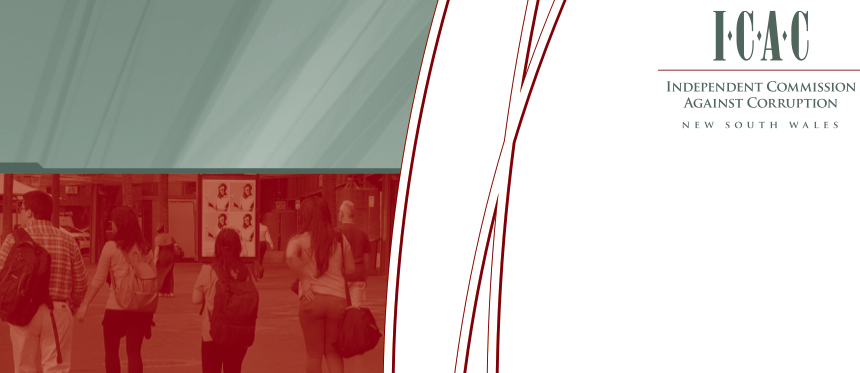Financial pressure to recruit and retain fee-paying international students can lead to universities compromising their academic integrity and turning a “blind eye” to problems, according to a report into corruption in higher education in New South Wales.
News and business analysis for Professionals in International Education
Have some pie!
Separate compliance and profit, NSW universities warned

The report, published by the NSW Independent Commission Against Corruption, urges universities to separate academic compliance and incentive functions of their international student offices to reduce the risk of corruption.
“To intertwine compliance and profit, and to reward profit over compliance, can be conducive to questionable and corrupt behaviour”
“To intertwine compliance and profit rather than separating them, and to reward profit over compliance, can be conducive to questionable and corrupt behaviour,” it states.
ICAC’s findings also triggered an investigative report by ABC’s Four Corners programme into academic corruption at Australian universities.
The investigation uncovered evidence of corrupt agents helping students with poor levels of English to enrol at Australian universities.
International student numbers have increased 13-fold between 1988 and 2014, generating around 17% of university operating revenues in the state in fees in 2013.
Problems arise when universities begin to depend financially on income from international student fees, so that they “cannot afford to fail” students who are under-performing, the ICAC report states.
And with increased pressure to recruit internationally, some universities are being lax with English language standards, it found.
IELTS guidelines recommend a test score of 7.5-9.0 for linguistically demanding courses, the report notes, after finding that some courses were accepting IELTS scores as low as 6.0.
“For almost 30 years, [universities] have experienced problems such as fake qualifications, questionable agent behaviour, visa-driven enrolments, nepotism in offshore campuses [and] loss of intellectual property to partners,” it states.
It also goes on to say that unwitting involvement in offshore bribery, cheating and plagiarism, exploitation of students and students offering inducements to staff are also problems that universities face.
Other recommendations in the report include limiting the number of education agents universities work with to recruit international students, as well as forging closer relationships with trusted agents and increasing due diligence and monitoring of agents.
It also advises that universities open partnerships with overseas institutions as an alternative to agents.
Despite raising a number of areas of concern in the area of student recruitment, by showing that universities have detected instances of fraud, the report “verifies the effectiveness of many of the control mechanisms in place”, commented Brett Blacker, president of the International Education Association of Australia.
“The list of agents terminated by Australian universities indicates that Australia universities have robust systems for identifying and stamping out fraud”
The Four Corners programme also found that the University of Western Sydney has been forced to end its relationship with four overseas agents because they had funnelled fraudulent applicants into the country.
However, it faced backlash from international education stakeholders, who criticised the programme for what they said was unbalanced reporting.
“This form of one sided commentary puts the reputation of our sector at risk,” argued Blacker.
“Clearly, as with any other sector or industry, such examples need to be thoroughly investigated and, where appropriate, acted upon decisively,” he conceded.
However, he contended that “Australia has the mechanisms in place to ensure overall quality assurance in the system and is proactively engaged in improving a number of measures, such as the accreditation of education agents.”
Universities Australia chief executive Belinda Robinson also acknowledged the risk of corruption, but stressed that universities “have been working continuously” to to reduce and mitigate them.
“The list of agents terminated by Australian universities over the recent period indicates that Australia universities have robust systems for identifying and stamping out fraud and unethical behaviour,” she said.
“Four Corners also failed to acknowledge the development by the International Education Association of Australia of a further quality assurance programme of initiatives for offshore and onshore education agents,” she added.
Still looking? Find by category:



Wish all the universities should follow NSW plan work with agents. Gradually quality will improve till then, all type of stake holders spoil the system. Being education counsellor i expect perfect and quality students should go and study, build career.